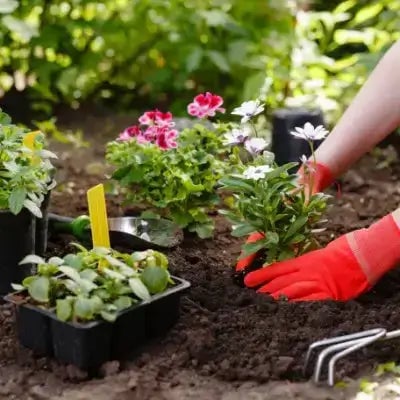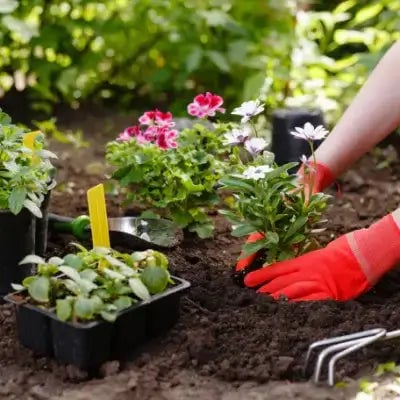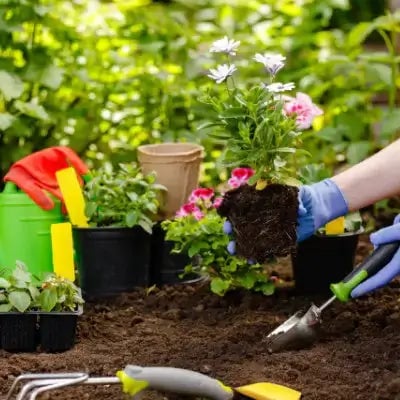Tennessee Wholesale Nursery Reviews- From Customers That Have Purchased Plants
I am delighted to have purchased the Blackberry plant, and I could not help but admire them. They started to bear fruits and could not wait to harvest them in just the perfect weather. Getting them was the best decision, and I just wanted you to know!
Lyenne Carter, Skokie IL
Blackberry Plant
The blackberry plant, formally known as Rubus fructicosus, was considered wild in the early days, so they were not cultivated. Blackberries are perennial plants that typically bear biennial stems ("canes") from the yearly root system, and they are considered one of the easiest fruits to grow at home. Those eager to have blackberries would go to where the bush is found and handpick them. However, identifying their species is difficult because many types of blackberry plants have crossbred by themselves. Most believe that there are more than forty species of blackberries. They are also known as bramble, Brummel, brambleberry, and bly. Almost all corners of the earth have a blackberry species, and each of them managed to adapt to its specific climate conditions.
TN Nursery Reviews - Tennessee Wholesale Nursery
Over the years, the blackberry played an essential significance in medicine and was used to treat various health conditions. For example, Greeks and Romans are said to use blackberries as medicine and use their roots, bark, and leaves to treat bowel problems, along with whooping cough and fever. In addition, people believed the blackberry treats bites from venomous creatures, sore throat, and boils.
One can date blackberry consumption back to thousands of years. Since it tasted good, it aided in the development of culinary purposes. Blackberry pie, crumble, jam, and currant are some of the sweet favorites of all time. Another known use of berries includes making indigo or purple dye. However, until recently, blackberries have been long considered wild and uncultivated. They only became a horticultural statement when Judge Logan began to crossbreed the berries, which then caused a chain of events and trends that eventually led to the popularity of thorn less berries. One good example of a leading producer of blackberries would be Mexico, and a top producer from the United States would be Oregon.
TN Nursery Reviews
Blackberry plants spread aggressively by sending up long canes. The canes can grow up to forty feet long, but it may depend on the species. As the blackberry canes mature, they lie down on the ground outside the patch—and when the blackberry cane touches the floor or the soil, new roots will spread, and a new plant grows. But that, of course, depends on the species.
A cousin of the blackberry is the black raspberry—a small, black-colored raspberry covered with tiny hairs (much like a raspberry). They are harvested earlier than blackberries and can also handle the cold better. Black raspberries are less tart than blackberries, making them better for eating fresh (though they also make great jams). Blackberries, which can sometimes be somewhat sour, are great ingredients for making a dessert.
One way to identify them is to look for dense thorny shrubs that form thickets and grow up to thirteen feet tall. The next step is to examine the flowers closely, as blackberry flowers are white with five petals and appear towards the canes' tips. Blackberry leaves, which have three to five leaflets around the center ridge, would be dark green, with white fuzz on the surface. They have a row of thorns on the spine-like structure centered in the leaflets, and to clear up the confusion between a raspberry and a blackberry, raspberries leave the core behind and are hollow when picked. Blackberry cores remain, with a white center on top of the fruit.
The fruiting season of blackberries lasts during the summer, from July, August to September--they will, however, not ripen after picking, so it is best to wait a little longer until you deem it convenient. They may be produced as bare roots or potted to plant blackberries, and they need a well-drained, sunny location with no standing water. Canes must be spaced around three feet in rows six feet apart, and you must dig each hole twice the size of the root mass. Blackberries do not grow in heavy clay soils, as compacted soil makes it difficult for the roots to spread and grow, and clay soil cannot guarantee drainage. Clay soil would result in water-logged blackberry roots that would eventually cause their death. Blackberries cannot produce either in areas that collect standing water when it rains. They must not grow in soil contributing to growing tomatoes, potatoes, peppers, strawberries, or any other type with bushes and brambles.
Before planting bare-rooted blackberries, trim long and broken roots, and cut back the top growth by around six inches or less. You must set the roots two inches deeper than formerly grown, and you should backfill the plant with loose soil. Next, gently press the ground around the root ball, as transplants need good root-to-soil contact, and do not press it too hard as it can cause soil compaction and root damage. Next, gently water around the root ball to settle the soil and drive out air pockets, and after planting, be sure to mark the plants with plant labels so you can identify and locate them according to their variety. And finally, mulch the blackberry roots with two to three inches of pine needle compost to retain their moisture and, simultaneously, prohibit weed growth.
In planting potted blackberry plants, you must first set the plant in the hole at the same depth as was grown in the pot. Next, backfill the hole with soil and press firmly around the base of the plant, and water deeply—the water will seal off any air pockets around the root ball. After planting the blackberries, do the same as the bare-root plants and mark them according to variety and location. And once again, mulch with two or three inches of pine needle compost to retain its moisture and prohibit weed growth.
Shop Where You Can Trust: Tennessee Wholesale Nursery Reviews are excellent and buy from a reputable company
Read more

Fall Planting, The Best time to plant anything greenIt might be tempting to plant new additions to the home garden in spring, but the best time for planting is in fall. A great reason for fall plan...

There is a lot to think about if you search for the best flowers and trees for your home or office garden. You might need to know what you need, so you should partner with a local nursery. When you...


